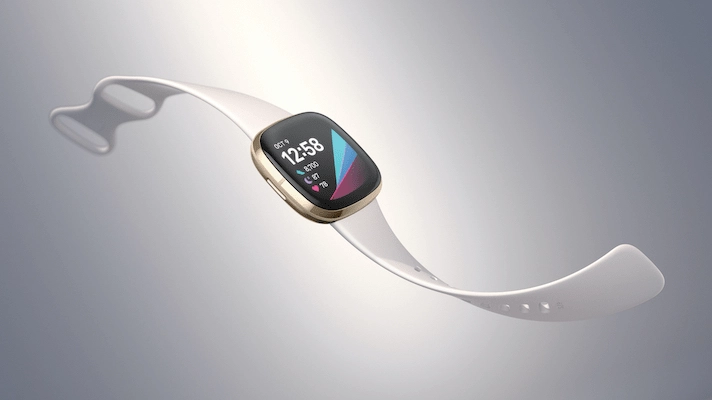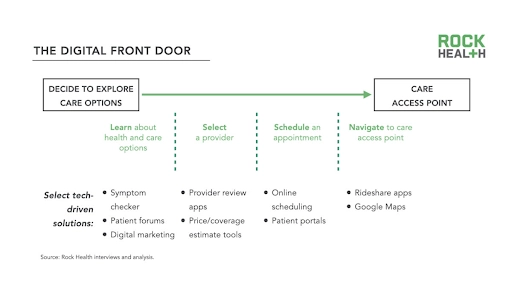

Digital healthcare digest — August 2020
Hey! Summer has ended, and it’s time to pin down some conclusions. We’ve collected the most interesting things that happened in digital healthcare in August - among them, the biggest healthcare merger, new Elon Musk’s implant, some cybersecurity challenges, and reports on the new way of working in the COVID-19 era. Enjoy!
New products and launches in digital health startups & businesses
Validic, the provider for health data platforms and software for remote patient monitoring, rolled out an update to one of their main solutions, Validic Impact. The update allows deploying end-to-end technology solutions for chronic and acute condition monitoring with no EHR integration and minimal configuration requirements.
Ellipsis Health, a startup that uses speech as a behavioral biomarker to measure anxiety and depression, launches a new voice-based Rising Higher app.
Verily, Alphabet’s daughter company, formed a new subsidiary, Coefficient. The new company will enter the employer stop-loss segment of the insurance solutions. They will combine health tech with new insurance and payment models in precision risk software for self-funded employers to control costs of care through data from Swiss Re Corporate Solutions, one of Coefficient’s major stakeholders.
In the summer Neuralink’s progress update, Elon Musk ran a demo for the company’s brain implant. He promised the implant will cure neurological and mental disorders in the future and demonstrated its safety on pigs. It looks like pre-brain-to-computer technology, but scientists doubt it’s safe - or viable.
The subsidiary of JD.com, one of the largest e-commerce companies in China, - JD Health, launched a family doctor service. It’s subscription-based; up to eight people can set up a consultation with a general practitioner immediately or connect to a specialty doctor within 48 hours. The company invited 300 full-time doctors to provide virtual care services for JD.com.
Amazon released Halo, the company’s first wearable and the supporting app for it. Among its interesting features: no screen (to reduce distractions); 3D-modeling of weight gain/weight loss; voice recognition algorithm that can tell users how happy/upset they sound; activity is measured not by steps, but via intensity/duration of the movement.
Fitbit also releases new wearables - among them, “advanced health” smartwatch called Fitbit Sense with an embedded electrodermal activity sensor, an electrocardiogram app, heart rate tracker, and on-wrist temperature sensors. Fitbit says the sensors will help users see how their bodies react to stress and manage it more efficiently. The company also released Fitbit Versa 3 and Fitbit Inspire 2.

Digital health startups funding in August
Waterdrop (Shuidihuzhu), a company from China which platform is based around crowdfunding and mutual aid, provided when the platform’s members fall ill, raises $230M. The company’s long term goal is to become a leading online healthcare platform in China and helping people with financing issues, providing them with integrated healthcare services.
Lyra Health, a mental health benefits provider, lands $110M in Series D. Their valuation now is $1.1 billion. Right now, they want to expand their teletherapy offering as a part of the effort to address pandemic challenges: their research from July provides their CBT-based Blended Care platform is efficient for clients with depression and anxiety.
Podimentric, a virtual diabetes company, raises $24.6M in their Series B. Their platform is a tool for diabetic foot-ulcer detection. It comprises cellular-connected SmartMat for at-home use and a dashboard for clinicians. Patients are supposed to stand on the SmartMat 20 second a day - and the device collects foot temperature and scans and sends results to the care team for early detection.
Nurx, a startup for online purchase and delivery of health tests, birth control, and medications for women, landed $22.5M in Series C.
Infermedica lands $10.2M in Series A for their triage and symptom-checking solution.
Ginger, a startup for virtual behavioral care, gets $50M in Series D. They want to spend new money on addressing the rising demand for anxiety & depression treatment.
Digital healthcare market news & partnerships
CB Insights released its annual report on the most promising digital health startups in 2020. Top fields are, as follows, clinical intelligence & enablement (for doctors’ workflow optimization), screening & diagnostic (especially at-home tests/checking devices), and, of course, virtual care (hey, telemedicine.)
The largest digital health deal in history happened that summer: Teladoc Health, a giant virtual care company, merges with Livongo, a chronic condition management company, for $18.5 billion. They will create a titanic business within the field of telemedicine and virtual care, that is expected to have pro forma revenue of $1.3 billion with 85% year on year growth. The merger is viewed as the deal that will consolidate and democratize healthcare, as it’s popularizing and accelerating digital health and offering clinicians an alternative beyond the EHRs.
New Rock Health report shares fund’s research & thoughts on the transformed digital healthcare market: the rising popularity of selling to employers, new screening solutions from established digital healthcare companies, prediction about changes of view for data sharing, opportunities, given by the crisis, for long-term.
Another Rock Health’s work on how to build & refine the digital footprint for health systems.

Sonde Health, another vocal biomarker tech platform, acquired NeuroLex Laboratories, a voice-enabled survey and data acquisition platform (and its amazingly rich datasets), who is a leader in the niche. Their consumer-face solutions (Sonde’s mobile apps and NeuroLex web-based interface) will make the solution platform-agnostic.
GoodRx, an online pharmacy for low-cost prescriptions with a cost transparency/comparison tool, files for IPO, revealing 48% growth in revenue over the first half of 2020 totaling $257 million.
One of the emerging verticals in the digital health industry is femtech (women health startups): over the first half of 2020, it generated over $376 million in VC within 57 deals, says the new Pitchbook report, describing opportunities and challenges the startups in the field face.
Regulations and clearances in digital health
New guidance on what a medical device app is and how to comply with legal and regulatory requirements from Medicines and Healthcare products Regulatory Agency (UK).
Data protection & security threats in digital healthcare
A new report from IRONSCALES found an increase in successful credential theft attempts sent through phishing/spoofing login pages of Zoom, Google, Office 365, and others and social-engineering attacks during the first six months of 2020, and healthcare is a top target. Please, beware and teach yourself and your employees basic cybersecurity tips.
Remote workers are also under attack through vishing, alerts the FBI. Vishing is the voice fishing: health workers who work virtually were targeted to exploit legacy tech they use to send voicemails, calling them to pose as an IT member of the company they’re using and sending them a link after gathering necessary info; employees would follow the link and hackers would get access to their creds. So: know your IT vendors!
Security researchers from IMB X-Force Red uncovered a bug in components manufactured by Thales, that are now included in lots of IoT devices, that allows them to be remotely exploited, allowing a hacker to gain control of the device and access the entire network. The company has already released the patch that covers the security hole in the module (it’s Cinterion EHS8 M2M module, and other modules from the same product line).
Science & business research in digital healthcare
W2O studied consumers' views on data privacy in healthcare, before and during the COVID-19 pandemic, and recently released the results of the poll. Obviously, 70% of customers want privacy protection and informed choice in regards to sharing health data, and very few of them understand who might be collecting such data among devices and resources they use. Apart from that, 44% of respondents would share their data only if it would be used to improve healthcare outcomes for others.
Accenture released a new report on emerging digital health trends. For starters, it says that 85% of health executives finally agreed technology is an inevitable part of their work-life - and 90% agree they need to improve their relationship with consumers if they want to compete on a decent level. (Thank heavens, right?) Check out the full report here.
Machine learning can, potentially, predict which patients are at greater risk of severe respiratory infections and to relocate them to more fitting healthcare facilities, a new study in the American Journal of Managed Care says. That could improve health systems’ response to outbreaks.
Digital healthcare vs COVID-19 August
America launches the first COVID-19 contract tracing app built on Apple and Google Exposure Notification system. It’s called COVIDWISE, it’s free, and it’s sponsored by the Virginia Department of Health.
John Hopkins researchers develop robotic systems that allow controlling ventilators remotely, which is a great idea for limiting staff exposure to viruses and contagious illnesses. The device is attached to the screen of a ventilator, with a camera connected to the top of the device that photographs the screen and sends it to the operator outside. Tests with changing oxygens levels remotely were successful. Respiratory therapists, involved in the project, believe the technology will be amazingly helpful on the frontlines.
Incheon International Airport began a trial of Smiths Detection’s new UV disinfection kit that, evidently, kills up to 99% microorganisms, including coronaviruses, found on trays at checkpoints. Before, the company tested a new baggage scanner based on Smith Detection’s CT that gives a super clear 3D view of the baggage and reduces the need for physical inspection.
The survey showed the overall use of telemedicine across the senior population increased by 300% during the pandemic.
Tell us about your project
Fill out the form or contact us

Tell us about your project
Thank you
Your submission is received and we will contact you soon
Follow us

